/cdn.vox-cdn.com/uploads/chorus_image/image/29598065/bioshock-infinite-17.0.jpg)
The employees were shocked.
Irrational Games, the developer that created the BioShock series along with a number of other critically beloved video games, was viewed, by a number of sources close to the studio, as closure-proof: It had pedigree, talent and — to the outside world — creative carte blanche from its parent companies, 2K Games and Take-Two Interactive.
When the studio's co-founder and president, Ken Levine, invited the team of nearly 100 employees into a meeting about the company's history last month, many were surprised to realize, as the presentation progressed, that this very history was coming to an end.
More than a half dozen individuals who worked for Irrational Games during the development of BioShock Infinite, some of whom were there that final day, agreed to speak with Polygon anonymously about their experiences within the company. Additionally, one employee agreed to speak publicly.
Ken Levine and representatives from 2K Games and Take-Two were contacted for this report, but did not provide further comment than this letter Levine published on the day Irrational closed.
However, those affected by recent events and time spent at the studio over the past decade have provided a sense of what led to the end of Irrational. According to those with whom we spoke, the closure was the combined result of unfettered creative freedom, lower-than-expected sales, the butting of heads between Levine and his employees and the unrealistic expectations of big-budget game development.
It was to many a disappointing end to a studio that sought, in the words of those who worked there, to make a mark on the world and that fostered, from its top level, a philosophical viewpoint that it could and should make the absolute best video games.
But in the end, the strengths of Irrational Games were inextricably bound to its weaknesses.
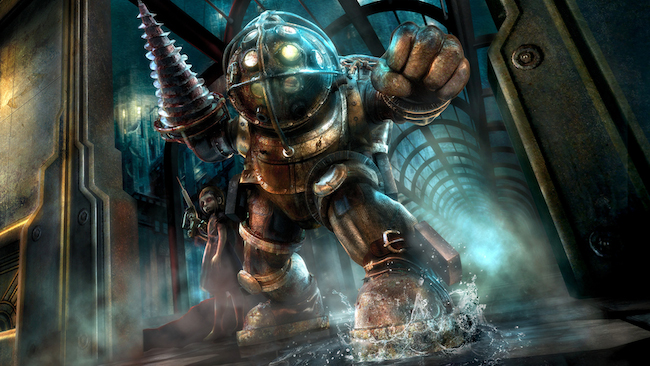
Making another BioShock
The evolution of Irrational from, at its largest, a 200-plus-person AAA developer to its new form as a 15-person studio appears to be, in some part, sources say, a reaction to BioShock Infinite's extended development. Work on the project began in some capacity after the release of BioShock in August 2007 and ended more than five years later with Infinite's release in March 2013.
Coming off BioShock, Levine and the studio wanted to create something even more spectacular, memorable and important. And they had the time. While the studio had had a good deal of creative freedom before — thanks to publisher 2K Games' history of providing plenty of leeway for its creators, as documented in our profile of 2K Marin — Irrational had additional resources and time to create whatever would come next.
Money and time weren't a concern for production in the first few years. The studio had an unusual surplus of creative freedom which, sources say, inadvertently stymied its ability to track budgets and maintain schedules.
And so, Irrational spent those early years of development discovering what the next BioShock would be, beginning in earnest around 2009 after preliminary work on the troubled XCOM project that became The Bureau: XCOM Declassified. Work also began on two multiplayer modes, along with a handful of multiplayer prototypes.
At this point, work progressed rapidly on the multiplayer content.
Irrational spent those early years of development discovering what the next BioShock would be
The first of the two modes was Border Control, a tower-defense game with an old-fashioned political cartoon art style, replete with racist stereotypes. The mode was itself a game set in the world of BioShock Infinite, meant to indoctrinate the fictional children of its bigoted universe.
The other mode was a bit grander in scope. Tentatively titled Spec-Ops, the mode would have had up to four players cooperating to kill enemies, collect loot and improve their characters. Matches would take place in a handful of areas, but those spaces would be modified by randomized content. And in the months after release, the stages would evolve, so that the changing environmental design told its own story about two warring factions — the kernel of conflict at the core of each BioShock game.
At this point, according to sources, the single-player campaign was still in an experimental phase, and Levine was growing impatient with its progress.
These early years of development were fueled by Levine's iterative process: a feverish ability to think, create, edit, trash and rethink ideas in search of the best possible result. It's an intensive polishing process, say sources.
The method had proven results. Sources describe their former boss as someone with an ability to polish a mid-level game into a high-level one; someone who knew what critics and shooter fans wanted, and could finagle a way to please both parties. But where Levine had other projects taking his time during the development of the original BioShock, his attention was singular for this follow-up.
Interviewees pointed to Levine's eagerness to iterate as his most brilliant and most frustrating quality: It's an expensive and time-consuming creative method but, at its best, it could produce astonishing results. Former employees say it sometimes brought people to the company and other times drove them away,
Levine was growing impatient with single-player's progress
One source recalls how Levine would challenge the historical accuracy of a design, down to the tiniest of details. If something wasn't perfect — if it didn't fit in the context of the world — then it needed to be done again. "I realized that he's not someone you bullshit," says the source, "because he cares about that detail so much and really loves it when other people do too."
Other former employees had a more extreme reaction to their boss's creative process. At least one department had instituted a policy of "essentially having the lead observe a 'dress rehearsal' of any meeting that was planned to present content to Ken." In interviews from 2012, former employees of Irrational called this practice "Ken Whispering."
The process resulted in stacks of incredible work, including things like the Sky-Line, a death-defying method of in-game transportation that would be praised upon the game's release. That process, however, meant every aspect of the game, including its fundamental tenets, could be reworked over and over, to a point that entire chunks of Infinite's design had yet to be locked years into its development.
Infinite needed help from the outside.
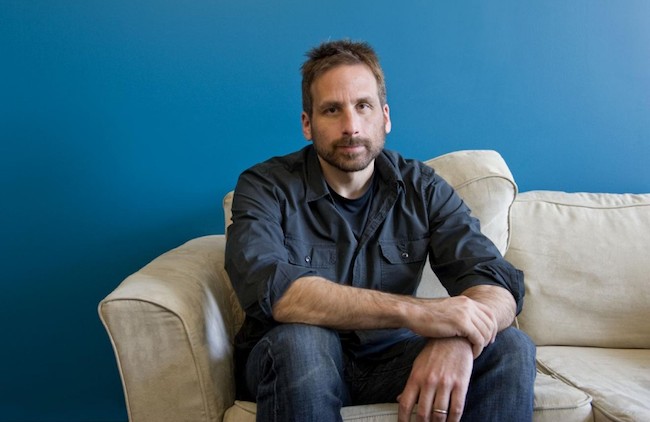
Company man
For those who worked at Irrational, Levine and his company were one and the same.
The writer, creative director, spokesman and president is a controversial figure in the industry, widely loved by fans and press, the latter of whom regularly remark on his charm and ability to talk candidly about his work. During interviews for our own profile of Levine, published in January of last year, he was frank and personable, unafraid to discuss his flaws and quick to point out what others might see as his key faults:
"I'm great in a conversation with a journalist," said Levine. "There is a topic there, you know. [...] [But] when people work for you it is a complicated social thing. I'm not a boss who is going to go out and drink with the guys and hang out with them. Because the next day I have to say, 'I need you to do this rather than that.' Those are hard orders to negotiate sometimes and I think there are probably people who do a much better job than I do."
The big hires
In January 2012, a little over a year before Infinite's release, Jordan Thomas, the creative director at 2K Marin — the studio that created BioShock 2 — joined Irrational, quickly helping to get Infinite back on track.
Thomas and Levine decided multiplayer was impractical. Plus, the single-player mode still lacked a robust combat system. The modes were dropped and the teams were brought on to single-player production, where the combat experience could be applied.
Many sources shared an enormous appreciation for Thomas' impact on Infinite. In the words of one employee, "Jordan was a revelation [...] No one worked harder. No one worked more hours. He treated everyone with respect."
Sources say Thomas and Levine shared similar visions, and that Thomas helped to realize them. Thomas is described as someone who could take the many ideas and projects in progress and organize them into one vision. He could snap the studio out of the iterative cycle by creating a map toward realizing the ideas in Levine's head.
"Jordan [Thomas] was a revelation"
In August 2012, Rod Fergusson was hired as vice president of development. Levine had been introduced to Fergusson — who shipped the billion-dollar Gears of War series at Epic Games — through a friend. Sources say it was Levine himself who hired Fergusson to help the company ship Infinite. With Fergusson on board, Tim Gerritsen, the director of product development, exited the production process. A month later he left the studio, returning to Human Head Games.
Many former employees believe Irrational would not have shipped BioShock Infinite without Fergusson. As one source puts it, "Rod insulated the team, but also earned Ken's trust and didn't interfere with Ken's creative vision."
As VP of development, Fergusson served as the practical, metrics-minded foil to Levine's creative method. And according to sources, Levine benefited from the structure and deadlines. One source says Levine actually excelled under restraint; that, given a deadline, he and the studio did their best work.
If Thomas drew the map, then Fergusson established a final destination. Every day, he sent the team a bug count and a list of actionable items. Then he'd meet with leads and directors in what a source calls "The Shit Chamber," a place where senior employees could get together and share information face-to-face.
"Rod was there to turn on the lights and to turn them off"
Says a source, "Rod was there to turn on the lights and to turn them off." With his support, the team found its momentum. With Fergusson installed and the game on track, Thomas left Irrational in November 2012.
At the end of 2012 and beginning of 2013, Levine went on back-to-back press tours, first in Los Angeles, then in Europe. When BioShock Infinite went gold — when it was essentially finished — the team gathered in Fergusson's office for a drunken celebration.
Many employees assumed, after nearly five years of continuous development, with 2K Marin helping on downloadable content, the studio would have some time away from making more BioShock.
They were wrong.
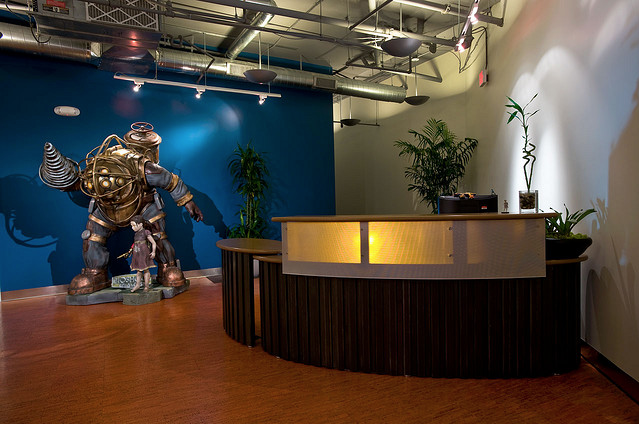
Office culture
Some former employees describe the studio as relaxed, which sounds like an appropriate way to characterize the team popping open bottles of liquor with the VP of development.
They mention karaoke get-togethers and favorite nearby bars. They recall office novelties: Monitors on the main floor displayed birthdays and anniversaries, along with new internal artwork or animations; for big game releases, employees would install a projector and play together in the shared space; on Wednesdays, some employees would organize a game night; Thursday was beer night at the local pub, and when beer night dissolved, because the studio was working late, the operations team tried to reboot it on Fridays, when a keg would be delivered to the third-floor kitchen.
Other sources describe a more competitive culture, where team leads were pitted against one another, jockeying for position, some scrabbling to get in Levine's favor. The boss demanded perfection, says one interviewee, and would ensure employees were judging their colleagues off performance, not friendship — just as he did.
Employees bonded internally over the unifying factor: working for Ken Levine.
In interviews for this piece, many former employees drifted into Levine's unique cadence when they recalled something he had said. It's not a crude impersonation; in fact, it often sounded unintentional, like they'd subconsciously learned to think and speak like their former boss after years of daily contact.
Among many of the former employees, Levine is still regarded with respect, particularly as a directorial lead.
"I personally loved working with Ken," says one source. "He challenged me to do my best work. He has incredibly high standards — standards that seemed at times to be outrageously tough when I first started. Once I learned better how to work with him, it became clear that his expectations were really no higher or more unreasonable than those of our audience. It did take me a while to understand what a good working relationship with him entailed."
Multiple sources mention this need to learn specifically how to work at Irrational and for Levine as a sort of institutional barrier: You either loved it or hated it.
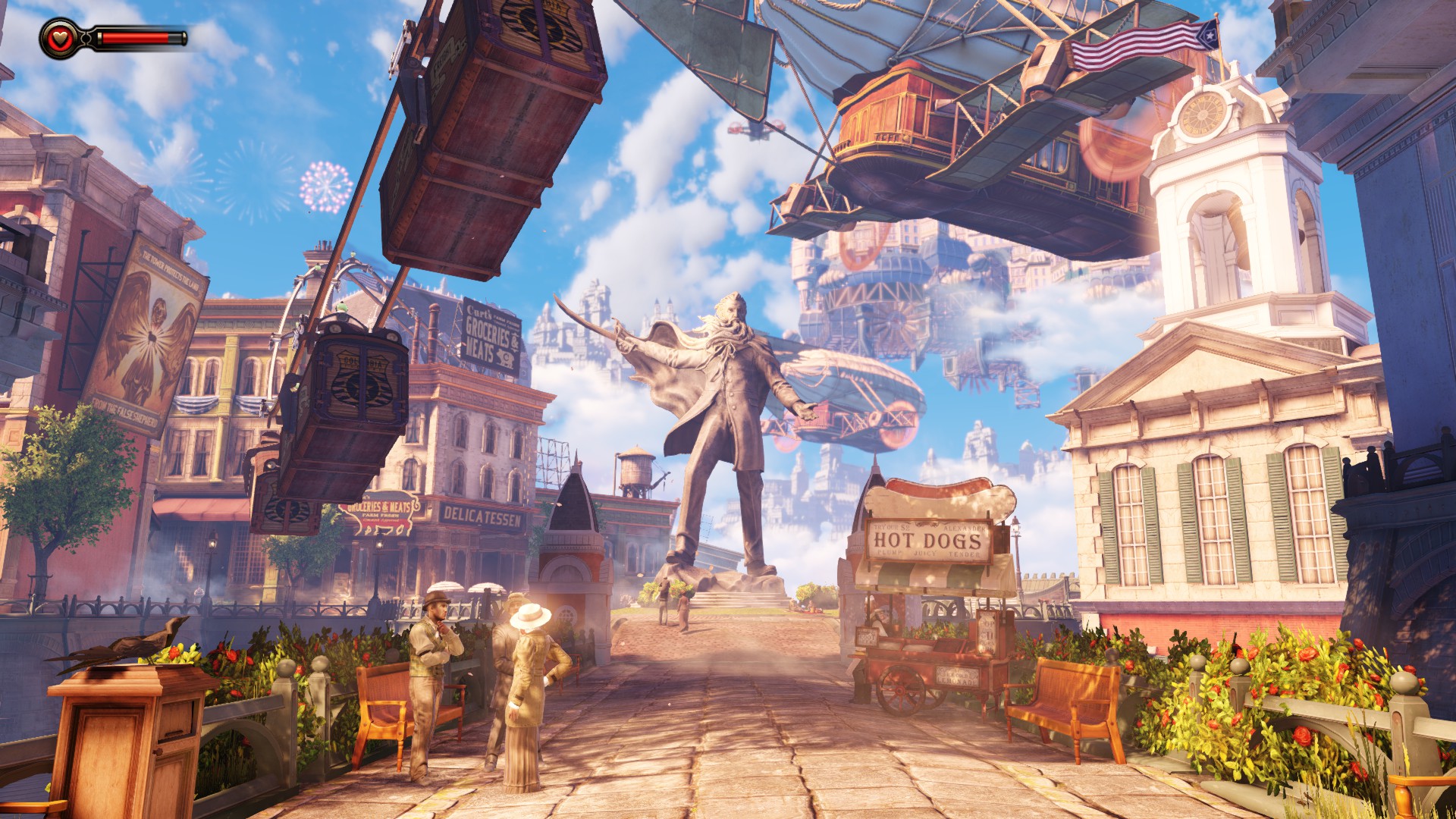
The Quiet Period
BioShock Infinite went gold in February 2013. Without the studio's next game lined up, many employees took vacation and comp time, while a skeleton crew remained to tie up loose ends and prepare a day-one patch that would fix last-minute bugs.
Irrational's operations team held a "going gold" party at a swanky restaurant near the studio. Sources describe the party as a cathartic release. One former employee recalls repeatedly hearing the phrases "emotional divorces" and "I'm glad to be married again" from the spouses of co-workers. Another source says, "Studio leadership spent time with significant others of employees to explain why the long hours and extra effort was extraordinary, and how appreciated it was."
One former employee recalls repeatedly hearing the phrase 'emotional divorces'
At the office, celebrations continued as the game's release date neared. A 3-foot-tall cake resembling the Songbird, a character in Infinite, was sliced and served to the team.
Squads of Irrational employees attended midnight launches at local game shops, where they signed autographs and took photos with fans in cosplay outfits.
Right before and immediately following the release of Infinite, more than a dozen employees voluntarily left Irrational for other jobs.
Sources say this surge of departures wasn't unusual at Irrational, that a batch of employees had left after the completion of the original BioShock. The departures, the former employees believe, were made for a variety of reasons.
2K Marin was scheduled to create at least the first part of planned downloadable content. But just after BioShock Infinite's release in March 2013 — as Marin approached alpha on this first piece of DLC — it became clear to senior employees at Irrational that the final product would be unacceptable. Irrational had already taken responsibility for the third piece of DLC, then the second, and now it would need to handle all three pieces.
2K Marin was scheduled to create at least the first part of planned downloadable content
The studio had, according to a former employee, about nine weeks to finish Clash in the Clouds, the first add-on to Infinite. It was a wholly new project — 2K Marin's work, which one source says could have seen Infinite's floating city crashing in some capacity into the ocean, was scrapped entirely.
The timing conflicted with the schedules of individual employees, who were scattered across the world: some at the annual Game Developers Conference, others still on vacation.
Plus, there were additional departures:
"When the DLC had started," says a source, "more people had started to leave. That did start to feel like an unusual number. [...] I think a studio like Irrational isn't for everyone, and while shipping a game like Infinite might have seemed worth it, working on the DLC, if Irrational wasn't your bag, to some it must have seemed like it wasn't worth sticking around. The team that remained seemed to be pretty heavily invested in the studio and the product."
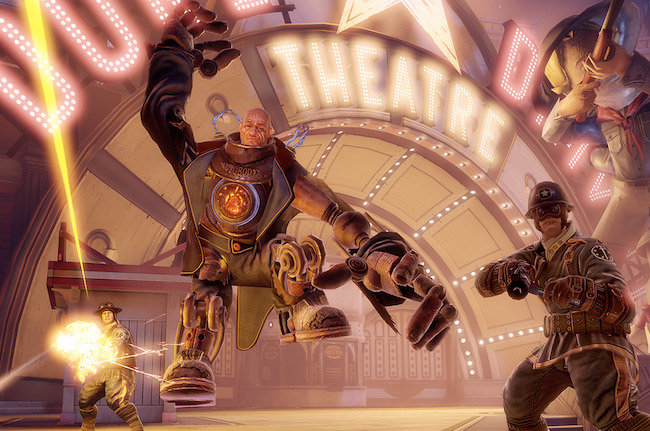
Clash in the Clouds received a mild reception. The downloadable content focused on BioShock Infinite's combat, which some critics believed to be the weakest aspect of the core game. As Tom Bramwell said in his review on Eurogamer, "As stopgaps go, I'll still take it, but I'm also conscious that I could very well leave it, and simply settle in for the hopefully not-too-long wait for Burial at Sea."
But after crunching on Clash in the Clouds, sources say the Irrational team rediscovered its pace. Levine had already begun work on the narrative side of Burial at Sea, the two-part series that would conclude Infinite's DLC plan. On the weekends, Levine worked on a screenplay for a remake of Logan's Run, a favorite movie of his childhood. He'd scored the deal through his Hollywood agent. Decades ago, Levine had pursued a career in screenwriting.
Again, the studio entered a quiet period. But as DLC came to a close in the second half of 2013, and no future project was named, some employees grew restless.
After Clash in the Clouds, sources say the Irrational team rediscovered its pace
Arguably the biggest departure came in April 2013, when Rod Fergusson left the company within a year of his arrival. Fergusson's departure was a surprise to many at the company. And yet, Fergusson's family had not moved to Boston. He was still in temporary housing.
In a short talk following Fergusson's departure, sources say Levine spoke about what it would mean making another game in this landscape. After he concluded, the vice president and studio director of Irrational, Leonie Manshanden, reminded the team not to speak about the conversation externally. There was a tenseness in the room.
"[Levine] definitely wanted to work in a smaller studio," says a former employee. "It wasn't clear until a few days ago how much smaller."
Some former employees say work continued, business as usual. One person recalls team members huddling into an audio recording room, shouting, chanting and laughing for a voice-over sound bite that would be used in Burial at Sea. Afterwards, they snapped group photos. The DLC had its own crunch mini-breaks, like a Sunday party, catered lunches and a visiting in-house massage specialist.
But Irrational also gradually began layoffs, scaling the studio, which in 2013 worked exclusively on the DLC. By this point, the artificial intelligence, user interface and effects departments were thin to nonexistent. To help cover roles, programmers squashed AI bugs, while FX was outsourced for the DLC.
Learning to speak the language
Sources describe Levine as creatively demanding, a man who would present an outline for a chunk of the game and leave the artists, designers and others with plenty of opportunity to bring their creativity and brilliance to the table. Employees were given tremendous freedom, say sources, but in return they were expected to struggle with Levine over their creations. The process was oppositional instead of collaborative, and multiple sources describe arguments that felt like personal attacks.
"I'm very friendly with a lot of people from work," Levine said in an interview in December of 2012. "But at the end of the day you have to accept the fact that you as a person are sometimes going to be — whether it's 'you can't have that raise' or 'hey, can you change this thing that you worked really hard on?' — you are going to be a person who sometimes disappoints people. If you get really stuck over the fact that they may be upset with you for that, you compromise the game for that, they may like you less as a friend. You have to be very careful about that because you can end up really not fulfilling your responsibilities."
Sources describe Levine as creatively demanding
Sources mention time and again how Irrational had its own language and style. Some people fed on the competition, on the need to pitch. And other people grew to resent it.
Some employees loved Ken; some felt personally hurt or wronged by him. Some subjects interviewed for this report said Levine's behavior could go beyond the role of a stubborn boss and sometimes became explicitly rude or mean. Sharp profanity, shouting and heated arguments, say sources, weren't uncommon. One source claims Take-Two mandated annual sensitivity training for its employees in the final years.
Another source claims that, at one point in Infinite's development, an external firm was brought in to improve the studio's culture. They held a workshop and, after some analysis, they reached a conclusion: Levine wasn't going to change, so the employees would need to change around him.
Many people consulted for this piece believe Levine's management and interpersonal skills improved over the years — albeit only to a point.
"[Levine]'s definitely gotten better," says one source. "But only in his delivery. He's still as critical and brutal as [a director] needs to be. You can expect that from a creative director. It's not their job to show restraint."
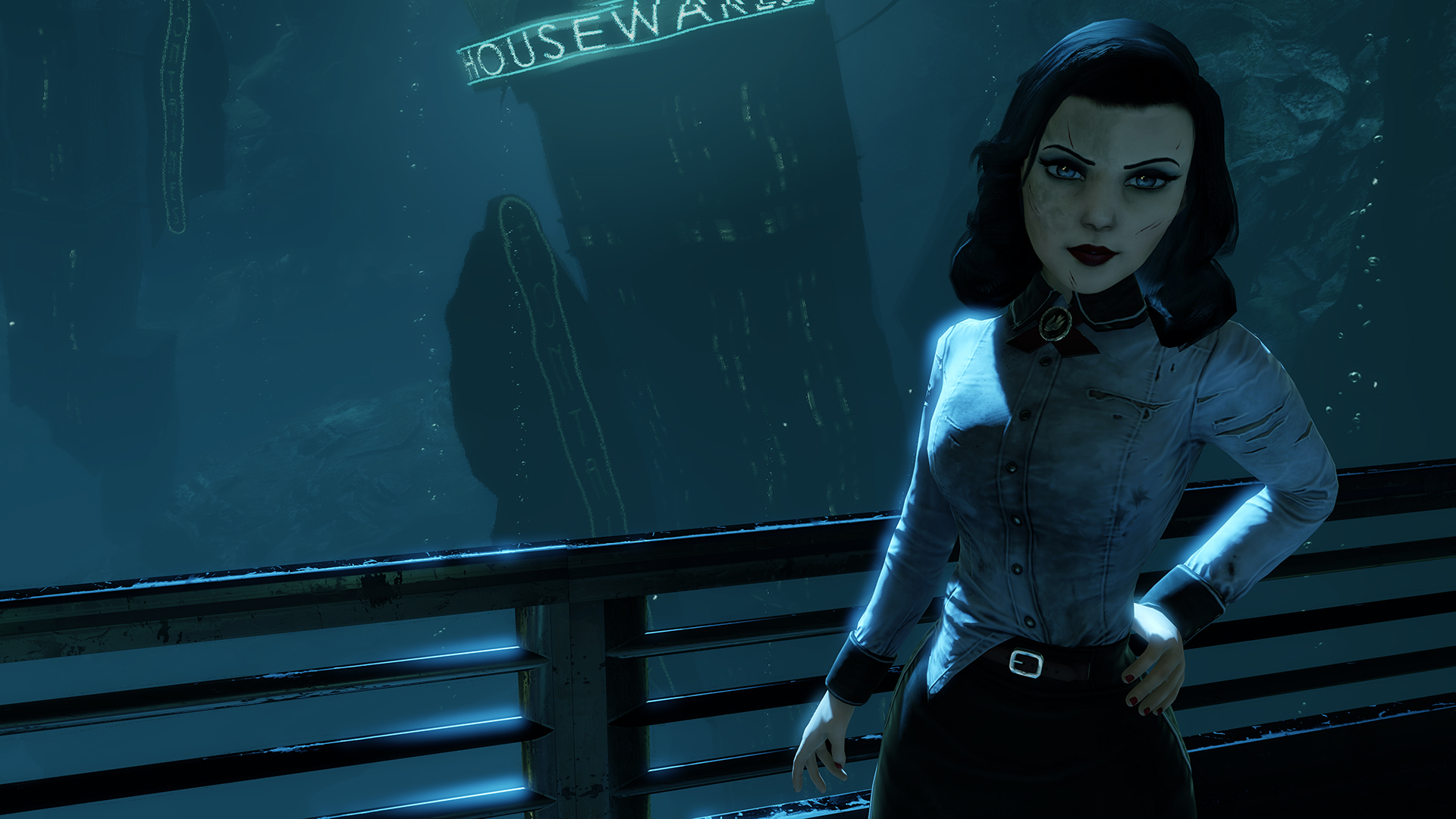
Looking forward
In tandem with the development of downloadable content, the senior-level staff at Irrational began to conceptualize where the company would be in the future. Without a major project, they turned to the company's practical needs.
Irrational Games operated out of an office in Quincy, Mass. The building was due to be torn down in the next few years as part of the city's development. The studio needed to move somewhere.
The two choices were Cambridge and Dedham. The difference in location didn't matter much to people who drove to work, but severely inconvenienced public transit commuters. Ultimately, Levine and the studio went with Dedham and a move was planned for spring.
Irrational's office building was due to be torn down
The move, while not loved by everyone at Irrational, certainly represented a willingness by the company to look toward the future.
As for creative forward-thinking, Levine did have one high-level pitch that multiple sources mentioned, but it wasn't enough to warrant an entire team. Levine imagined an AI project that grew with the player, in some ways reminiscent to Elizabeth, the non-playable character and ally in BioShock Infinite that reacted in a lifelike way to the player's movement through the game's environment.
When there wasn't enough DLC work in September 2013, an additional set of layoffs came. A source compares this period to the one after BioShock's release, when Irrational worked on XCOM, which would later make its way to 2K Marin. "Ken had lost heart in it, and was secretly negotiating with Take-Two to get us off that project and on to what became BioShock Infinite."
By the beginning of 2014, very little work remained to be done across all projects. Some employees began asking about the "next big project," but they were told to, in the words of one source, "recuperate from finishing three DLCs in a row right after shipping Infinite, and to spend some time thinking about improvements to skills and processes."
"Some people did seem worried about layoffs"
Multiple sources said that by the completion of the DLC, the development process within Irrational had improved significantly. Some staffers said they were happier; one cites the thrill of shipping so many projects after such a long time of working on Infinite as a creative boon.
"Some people did seem worried about layoffs," says a source, "but it seemed to me that most expected that we were going to have some downtime while the studio leadership figured out the next thing to start working on."
Says another source, "I've worked with Ken Levine enough to know that just a seed was enough to keep us going."
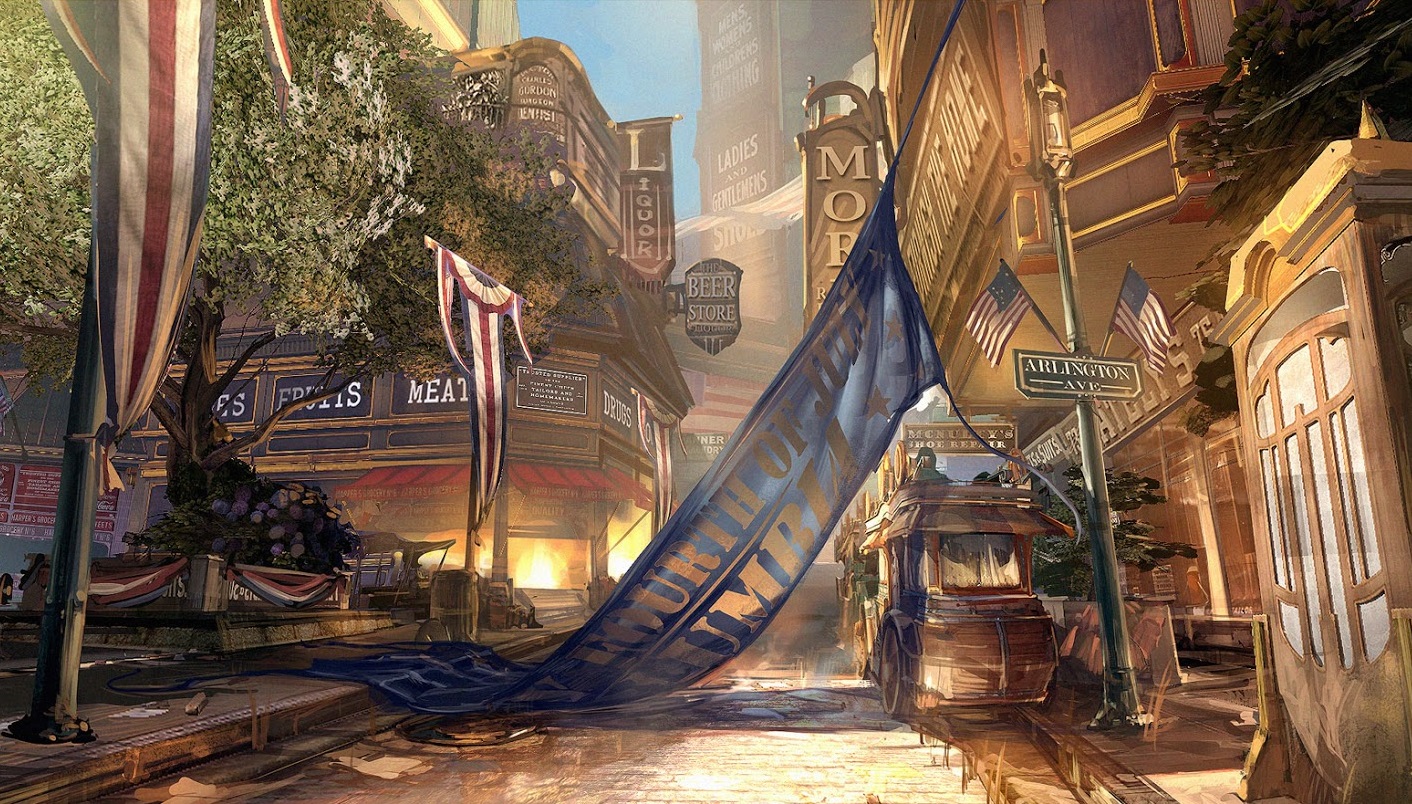
Closure
Most of the team learned about the closure on Tuesday, Feb. 18, less than two hours before the statement was made public. Some people within the studio knew in advance, namely those who would be moving onto Levine's next project, but they kept mum.
Everyone gathered in the kitchen slash common area where team meetings were regularly held, sitting on stools and fold-out chairs from the kitchen.
Levine, standing before the group, read from a piece of a paper. In most meetings, he spoke from memory or improvised. A pre-planned speech was atypical.
He transitioned from the introduction about the company's history into details about the company's closure. The room was quiet; there were no outbursts.
"There was a willful disbelief," says one source. "Some submitted to the idea that the company would live forever because they had shipped BioShock."
According to sources, Levine's hands were shaking while he read the announcement. He offered one-on-one time with employees and said he would write recommendations. "It was really nice and really sympathetic," says a source. "They gave us as much info as we could really handle at the time."
When Levine finished the speech, he quietly left and the operations team took over the meeting, explaining the logistics behind the closure.
Senior members stood at the head of the HR line to check on people individually and offer condolences and support. They encouraged employees to do what was necessary to process the news.
Many of the recently laid-off employees went out to lunch together. Some other employees who'd been laid off or left earlier joined the group. There were hugs and toasts and phone calls of support from faraway friends and family. Says one source, "A friend of mine commented to herself that this was actually the nicest layoff she had experienced, all things considered."
In total, 70 permanent employees and five contractors were laid off.
Employees weren't immediately cast out from the office. They were allowed to schedule times to collect boxes, organize portfolios and ask questions. Irrational scheduled a job fair, and local indie developer Fire Hose Games offered work space. And one source says Take-Two is taking care of the studio's former employees quite generously.
Levine has since taken to Twitter, sharing the portfolios and resumes of former employees.
Former Irrational user experience specialist Bill Gardner agreed to speak on the record about his personal experience with the layoffs. An employee of 12 years, Gardner climbed his way up from a position in the QA department. In that time, he became especially close with Levine.
Gardner had mentioned to Levine after the announcement that he'd like to discuss an idea for his time post-Irrational. The day after the closure, Levine invited Gardner to his home to chat. As Gardner stood outside the door, he recalls a storm of mixed emotions: anger, fear and shock.
"[But] when I saw his eyes, there was, like, this pain." Gardner felt sorry for his former boss, whose studio was now closed. "It was tough to see this man who built this amazing thing."